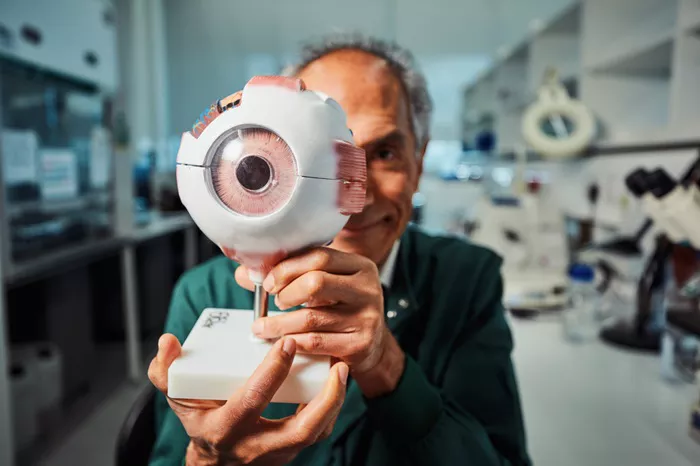In a groundbreaking development, Scottish researchers are collaborating with high street opticians to create an AI-driven digital tool capable of predicting dementia risk through routine eye exams. This initiative, spearheaded by the University of Edinburgh and Glasgow Caledonian University, is set to revolutionize the early detection of dementia, benefiting individuals worldwide.
The NeurEYE research team has compiled nearly one million eye scans from opticians across Scotland, forming the largest dataset of its kind globally. Using this data, the researchers aim to uncover patterns that could indicate a person’s likelihood of developing dementia and provide a broader understanding of brain health.
AI and machine learning will play a central role in analyzing the collected data. The team will link anonymized eye scan images to patient demographic details, treatment history, and pre-existing conditions. The goal is to equip optometrists with a predictive tool for conditions like Alzheimer’s, allowing them to refer patients to secondary health services when early signs of brain disease are detected. Moreover, the software could potentially serve as a monitoring tool for cognitive decline.
Professor Miguel Bernabeu, a co-lead of the NeurEYE project and Professor of Computational Medicine at the Usher Institute, emphasized the transformative potential of AI in medical research. He said, “This dataset, along with decades of ethical AI research at the University of Edinburgh, can bring a step change in the early detection of dementia for all.”
The project is funded by NEURii, a global collaboration between pharmaceutical company Eisai, Gates Ventures, the University of Edinburgh, medical research charity LifeArc, and Health Data Research UK. NEURii’s first initiative, SCAN-DAN, is also focused on predicting dementia risk, using brain scans from the entire Scottish population to develop predictive tools.
Dr. Dave Powell, chief scientific officer at LifeArc, highlighted the broader impact of such projects. He explained, “Harnessing the potential of digital innovations in this way could ultimately save the NHS more than £37 million annually by accelerating the diagnosis and treatment of neurodegenerative conditions like dementia.”
The collaboration aims to pave the way for real-world solutions that could benefit millions globally, easing pressures on healthcare systems and providing crucial support to patients diagnosed with neurodegenerative diseases.
As the UK moves toward becoming a global leader in health data-driven innovation, recent research from the Health Foundation shows strong public support for sharing personal health data to enhance AI development, particularly for eye health and long-term illnesses. This growing recognition of the potential for coupling sensitive healthcare data with cutting-edge technology is set to make significant strides in the fight against dementia and other neurodegenerative diseases.
Related topic:
New Leadership for Vision Care Portfolio Across North and Latin America
De Cordova MP Tours CHEC Wandsworth to Address NHS Eye Care
Qatar Red Crescent Society Launches Anti-Blindness Project in Sudan


